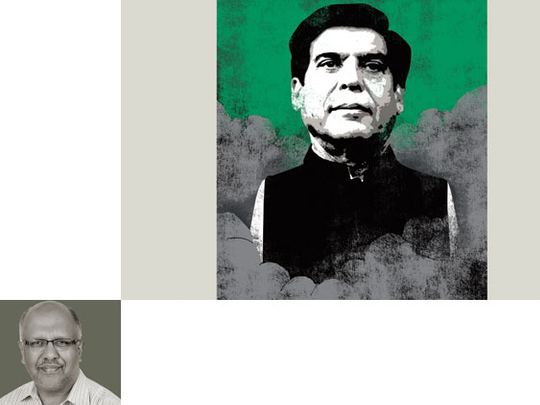
When Pakistan’s newly appointed prime minister on Friday promised to tackle the country’s increasingly unsettling conditions related to its acute electricity shortages, many had good reason to be sceptical.
The appointment of Raja Pervez Ashraf as Yousuf Raza Gilani’s replacement says a lot about the troubled nature of Pakistan’s politics. Gilani was forced out on Tuesday on a contempt of court charge in the supreme court.
He was forced out after his government repeatedly refused to formally approach authorities in Switzerland to reopen investigations of corruption against President Asif Ali Zardari, involving allegations that he received kickbacks from two Swiss companies. Gilani has denied the allegations, which his critics admit, need to be independently investigated.
The arrival of the new prime minister will hardly inspire confidence across Pakistan. Elected in 2008 and appointed minister for water and power, Ashraf had to quit his post in early 2011 amid considerable controversy. He was widely accused of repeatedly failing to end the electricity shortages in spite of making promises to do so.
Ashraf also faced difficult questions related to the manner in which ill-conceived plans were drawn up by his ministry to facilitate the import of electricity generation plants to be used on dams.
While little was achieved by way of improving the supply of electricity through these leased power plants, the initiative triggered allegations of largescale kickbacks that were eventually also investigated by Pakistan’s supreme court. Consequently, Ashraf found himself dubbed ‘Raja Rental’ by the Pakistani press.
Half-serious coalition
Though Ashraf has begun his new role with a promise to tackle the electricity-related crisis, his words will likely fall on deaf ears because of his controversial history. The challenges facing Pakistan are far too overwhelming to be left to a half-serious ruling coalition of the kind which has come to rule Pakistan today.
The past four years under the leadership of Zardari and Gilani have caused unprecedented damage to Pakistan’s ability to keep pace with the world.
In sharp contrast to its economic outlook in 2008 which appeared to have brought Pakistan to the frontlines of some of the world’s fastest growing emerging economies, 2012 puts the country squarely in the backseat among its peers. With an economy that has slowed down and investment activity virtually on hold, Pakistan just doesn’t inspire the kind of confidence it once did among entrepreneurs.
During the past four years, in addition to widespread accounts of corruption in high places, the government has also seemingly lost its ability to tackle some of the most difficult problems confronting Pakistan. Consequently, it is not surprising that Gilani’s departure and Ashraf’s arrival have coincided with absolutely the worst era of electricity shortages.
With many Pakistanis in smaller towns and villages coping with electricity cuts lasting for more than twenty hours a day, angry public protests seen recently should be hardly surprising. Ironically, Pakistan’s dilemma on the electricity front does not have to do with the capacity already installed for generation purposes.
Instead, the shortages are driven mainly by the inability of the government to pay for electricity produced by privately owned companies, as it tries to overcome a ballooning fiscal deficit — thanks to the visible squandering of precious budgetary resources.
Tackling such a challenge in part must also be linked to inspiring the broad mainstream public across Pakistan. The prevailing popular scepticism over the inability of the government to perform, essentially means that any new initiative by a new prime minister will not even receive half the serious public attention it may even deserve.
Surrounded by this unprecedented challenge, Pakistan’s new prime minister and the remaining members of the ruling regime have no option but to call early elections as quickly as possible. Once Pakistanis have gone through a vote to elect new political representatives, only then will the country’s mainstream feel inspired enough to rally behind a new set of rulers.
However, given the history of Pakistan’s ruling coalition which has repeatedly failed to read the writing on the wall, it will be surprising if the Zardari-Ashraf duo step ahead and respond to popular sentiment.
For now, Pakistanis may well be forced to live under a ruling dispensation which continues to feel rejuvenated even in the face of a visibly failing country.
Farhan Bokhari is a Pakistan-base commentator who writes on political and economic matters.









